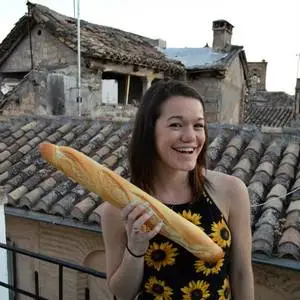What images come to mind when you think of New Orleans? Perhaps a big hearty cup of gumbo? Or a po-boy overflowing with fried seafood? Given that food is at the very heart of this city’s culture, these are legitimate associations. What many would be surprised to learn, however, is that although New Orleans is considered one of America’s greatest food cities, 20% of its residents are food insecure, as they have limited access to food due to lack of money or resources.
A major reason for the growing problem of food insecurity in the city is that certain areas of New Orleans are food deserts— the worst in the country, in fact. What? New Orleans is overflowing with food! Well…not all of it. According to the USDA, a food desert is any low-income area with a population greater than 500 that lacks a full service grocery store within a mile. Areas such as the Lower Ninth Ward suffer the worst, as Hurricane Katrina completely eliminated all food options within the neighborhood.
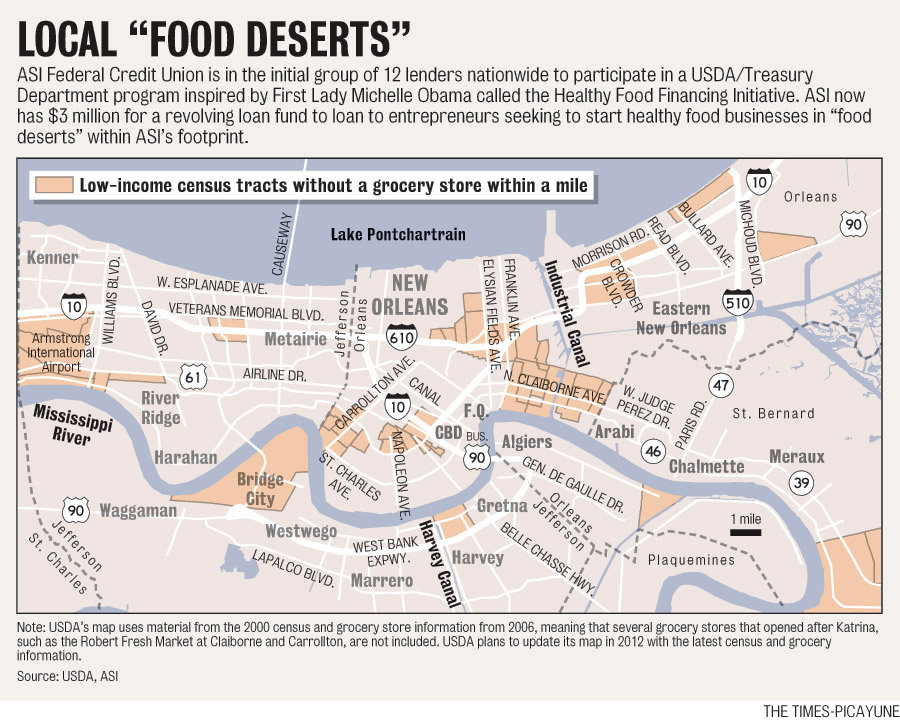
Photo courtesy of nola.com
The presence of food deserts poses a significant threat to future population health outcomes. The outstanding problem of obesity in New Orleans, for example, can be attributed largely to the fact that in food deserts residents must rely on convenience stores selling nothing but junk food for their source of food. With an obesity rate exceeding 30% and a diabetes rate of 12.3%, New Orleans ranks as one of our country’s unhealthiest cities.
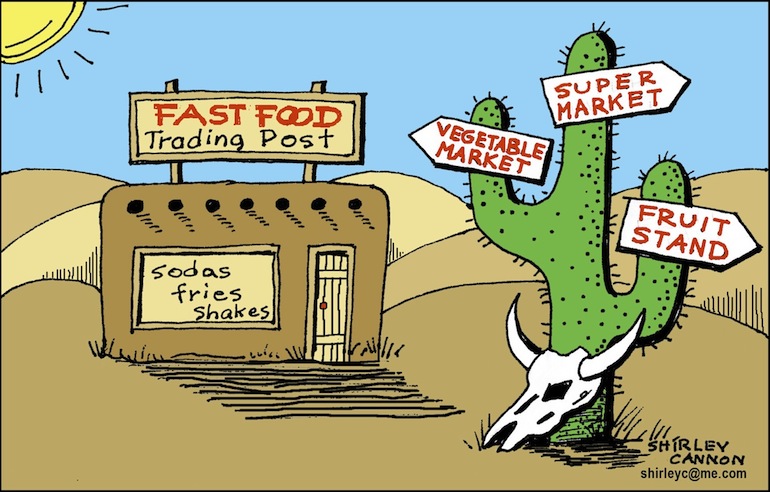
Photo courtesy of nextgenerationconsulting.com
As members of not only the food community, but also the broader community of New Orleans, it is a major concern of ours that so many New Orleans residents face these issues, and it is our responsibility to actively participate in the fight against them. Therefore, in the spirit of Spoon’s “local” theme for October, we decided to get our hands dirty and volunteer with an organization that is fighting these issues head on— Our School at Blair Grocery.
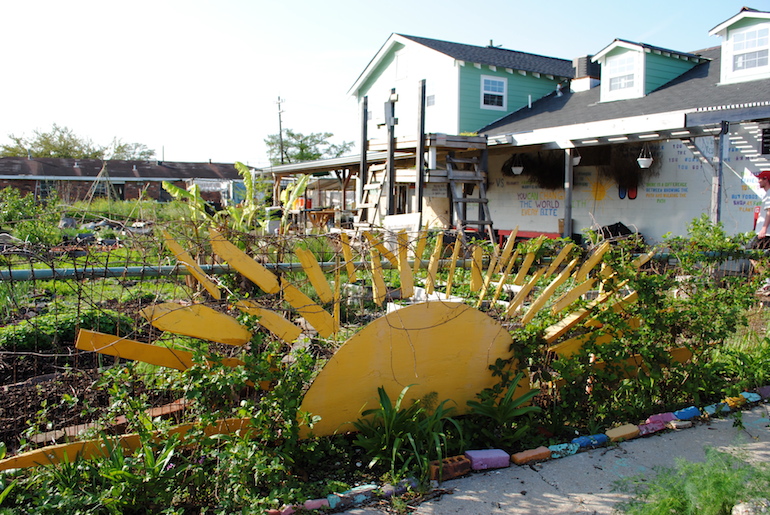
Photo courtesy of urabroadinamerica.wordpress.com
Our School is an all-in-one sustainability education center, alternative school, and urban farm in the Lower Ninth Ward, working towards “youth empowerment and sustainable community development.” The program offers a high school and neighborhood after school program that incorporates hands-on learning and GED-prep into the mission of creating a profitable, sustainable, and food-rich community in the Lower Ninth.
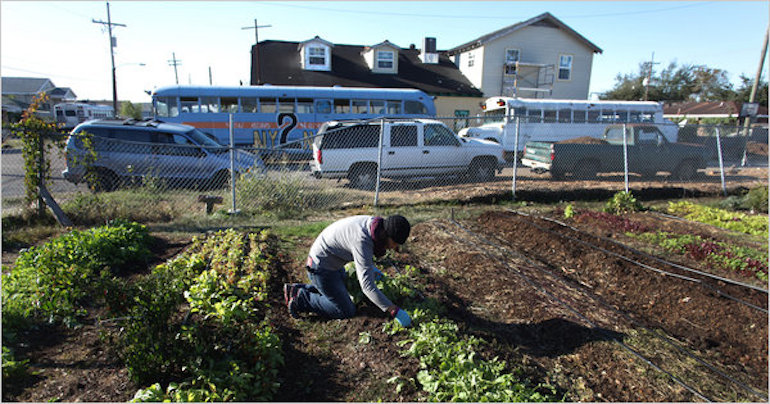
Photo courtesy of nytimes.com
Founder and director Nat Turner, a former New York City high school teacher, had come to New Orleans several times on service trips prior to 2008, but was compelled to relocate permanently to create a lasting change in post-Katrina New Orleans. After realizing that most of the youth in the Lower Ninth neighborhood had no afternoon or summer activity options, especially those that were adult-supervised, he began a homeschooling and youth development program in the building of an old family-owned grocery store (hence the name Blair Grocery).
Turner didn’t always have the intention of becoming involved with agriculture, but he soon found that tackling food-related issues was an effective vehicle for solving a number of other problems in the area. Through farming, for example, he can provide teens with valuable job skills, while also creating nutritious food options for neighbors. Composting not only produces food in a sustainable way, but also creates an opportunity to teach kids the science behind the practice.

Photo by Maddie Stein
On our trip to the farm we learned a detailed history of the organization, hung out with and fed some friendly goats, dug-up and distributed soil, and composted Whole Foods waste. This was probably the most interesting part of the visit, as we learned not only the science of composting, but also that Whole Foods donates their daily food waste to Our School, which amounts to roughly 1,000 pounds per week.

Photo by Maddie Stein
It was difficult for us to even consider the boxes of fresh, completely edible fruits and vegetables we were using for compost (and eating…) as “waste.” It reassured us to know that at least in New Orleans, Whole Foods’ waste is actually put to good use, but it concerned us to think about what all the other stores across the country do with theirs.

Photo by Maddie Stein
We were intrigued to learn about how the farm has been affecting the eating habits of its neighbors. How might one encourage a community of fried chicken lovers and red beans & rice fans to start eating kale and squash everyday? The key, according to Sam, one of the staff members, is to grow vegetables that locals are already familiar with, those that already have roots in southern cooking. Okra, for example, is one of the neighborhood favorites that is grown on the farm.
Although New Orleans still has a long way to go in becoming a sustainable and food-secure environment, it is projects such as this one that make it possible to envision New Orleans as a “food oasis” rather than a food desert. No effort is too small when it comes to igniting lasting change, and Our School at Blair Grocery is living proof of that.
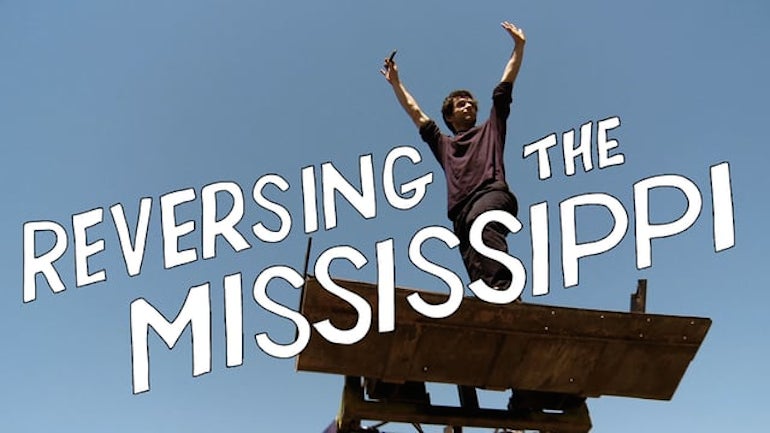
Photo courtesy of vimeo.com
If you’re interested in hearing more about Our School (or are passionate about food security, food justice, or the future of New Orleans), make sure to check them out in the upcoming documentary Reversing the Mississippi, premiering Monday October 19th as part of the New Orleans Film Festival.


